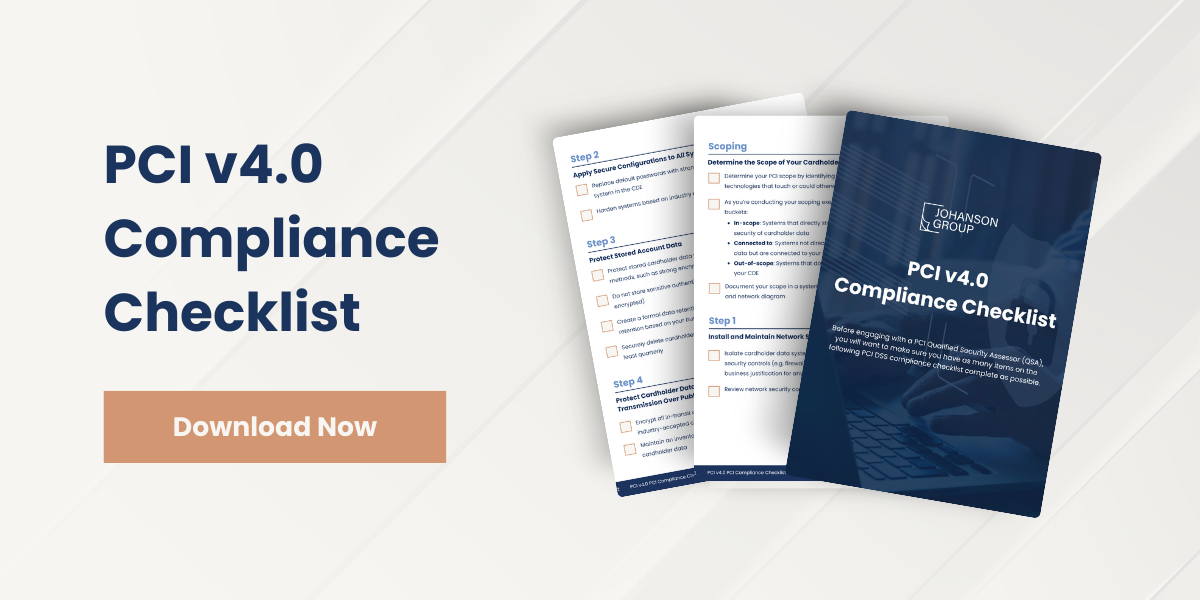PCI Compliance Guide
What is PCI Compliance?
PCI compliance refers to adhering to the Payment Card Industry Data Security Standard (PCI DSS), a set of security standards designed to protect card information during and after a financial transaction. Established by major credit card companies like Visa, MasterCard, and American Express, PCI DSS aims to prevent data breaches and credit card fraud.
PCI Compliance Levels
PCI compliance is categorized into four levels based on the volume of credit card transactions processed annually:
Level 1: Over 6 million transactions per year.
Level 2: Between 1 million and 6 million transactions per year.
Level 3: Between 20,000 and 1 million e-commerce transactions per year.
Level 4: Fewer than 20,000 e-commerce transactions or up to 1 million total transactions annually.
Each level has its own specific requirements and validation processes, with Level 1 being the most stringent.
Who Needs PCI Compliance?
Any business that processes, stores, or transmits credit card information must comply with PCI DSS. This includes merchants, financial institutions, payment processors, and service providers. Non-compliance can result in hefty fines, increased transaction fees, and damage to reputation.
What are the Benefits of PCI Compliance?
Achieving PCI compliance offers numerous benefits, including:
Enhanced Security: Protects sensitive cardholder data from breaches and fraud.
Customer Trust: Builds confidence with customers knowing their information is secure.
Avoid Penalties: Prevents costly fines and penalties associated with non-compliance.
Operational Efficiency: Encourages the adoption of best security practices, improving overall business processes.
PCI Compliance vs. Certification
While PCI compliance means adhering to the PCI DSS requirements, PCI certification involves a formal assessment by a qualified security assessor (QSA) to validate compliance.
PCI Compliance: An ongoing process where businesses ensure they meet the PCI DSS standards. This includes self-assessment questionnaires and regular security checks.
PCI Certification: A formal certification process where a QSA conducts a thorough audit and provides a Report on Compliance (ROC) if the business meets all requirements.
Certification can provide additional assurance to stakeholders, but the primary goal is always to maintain compliance to protect cardholder data effectively.
PCI 4.0 Compliance Checklist
Before engaging with a PCI Qualified Security Assessor (QSA), you will want to make sure you have as many items on the following PCI DSS compliance checklist complete as possible. PCI DSS version 4.0 introduces several updates to enhance payment data security.
Choose Johanson Group for PCI Compliance
When it comes to PCI compliance, the Johanson Group stands out as a trusted partner. With a dedicated team of experts, including our new Director of PCI services, Anthony Fulda, we offer comprehensive compliance solutions tailored to your business needs. Our services include:
Detailed risk assessments and gap analyses
Implementation of robust security measures
Ongoing monitoring and support
Assistance with PCI DSS validation and certification
Partnering with Johanson Group ensures that your business meets the highest standards of payment data security, giving you peace of mind and a competitive edge in the market. Contact us today to learn more about our PCI compliance services and how we can help secure your payment processes.




